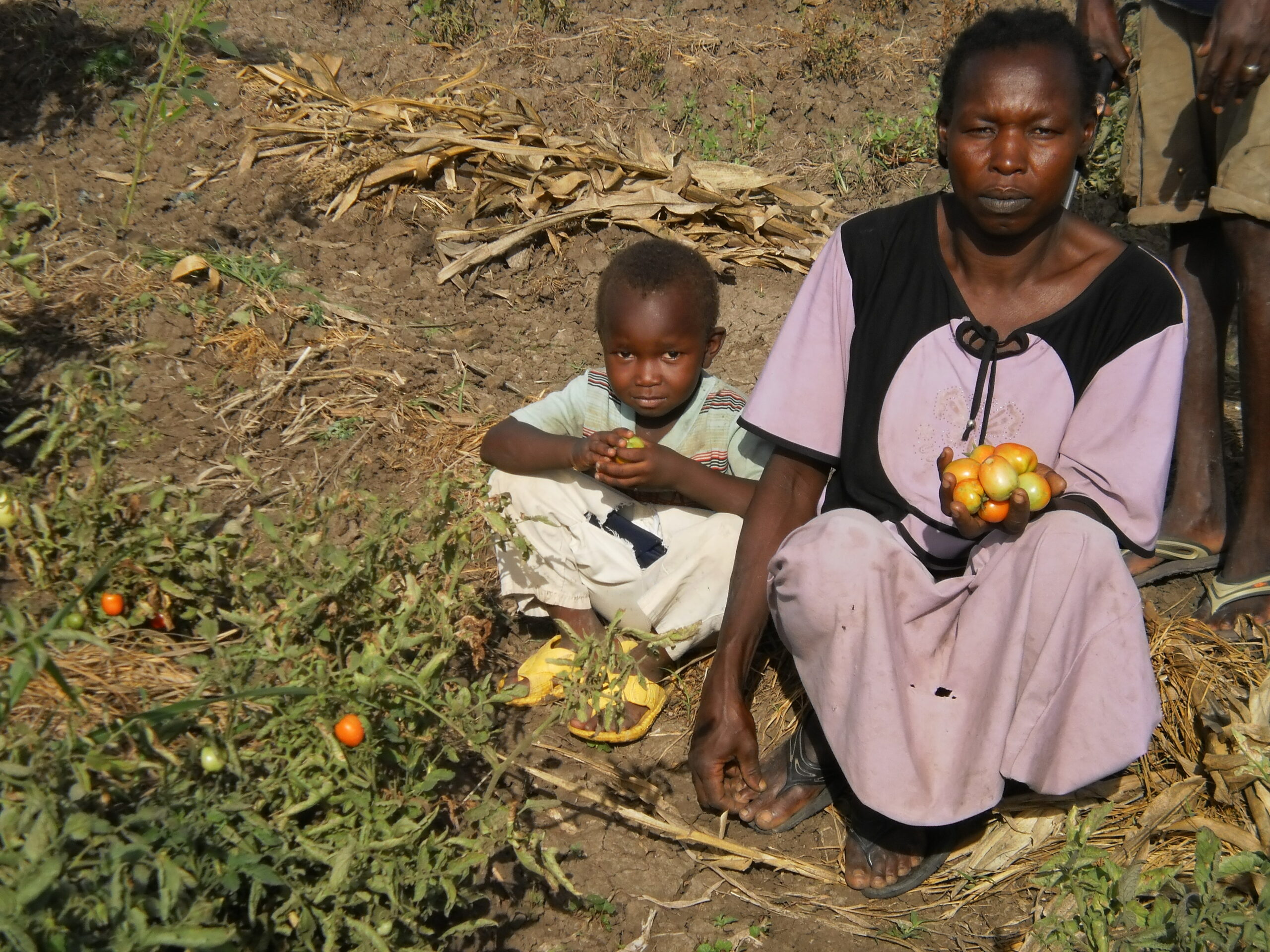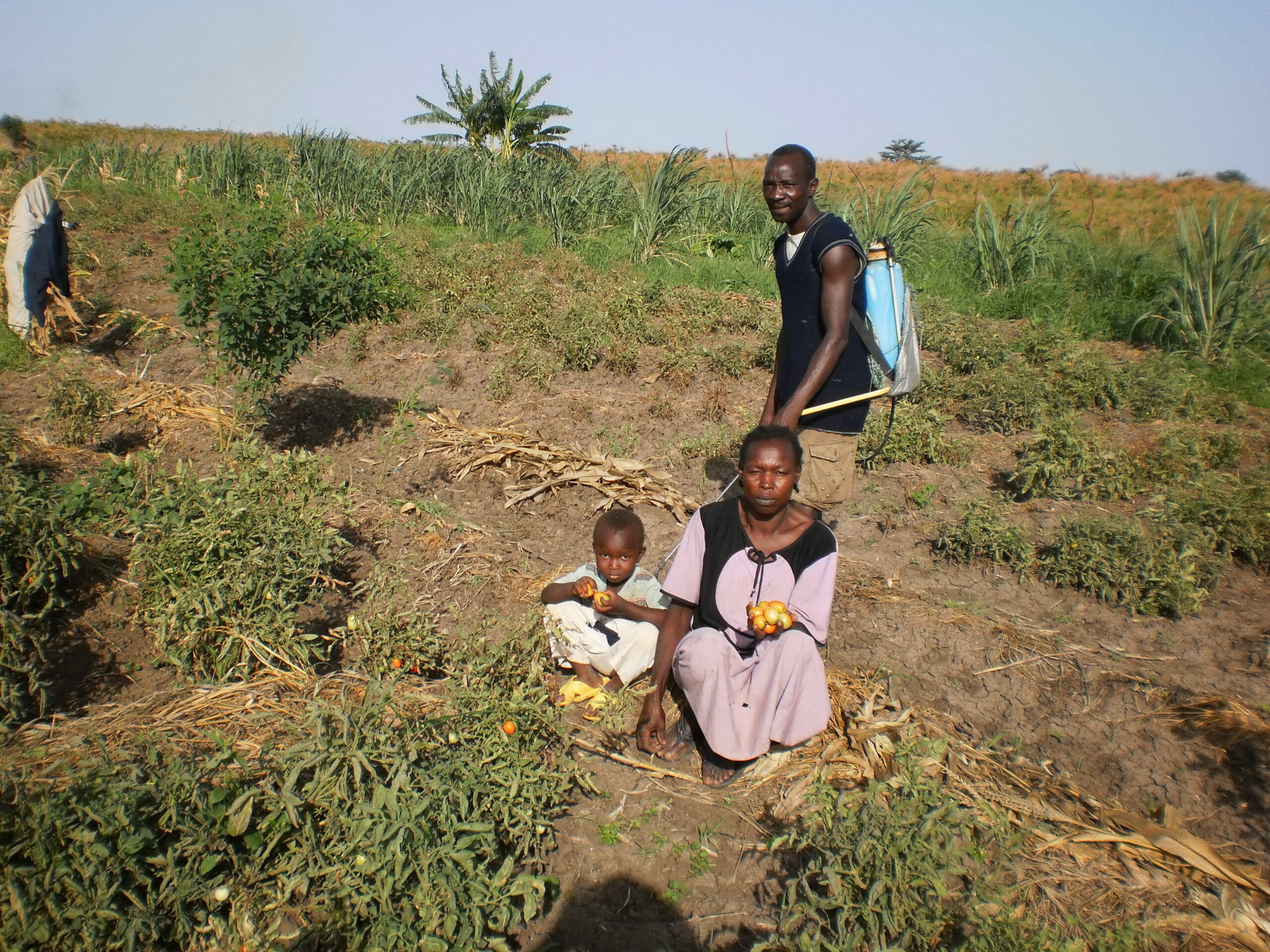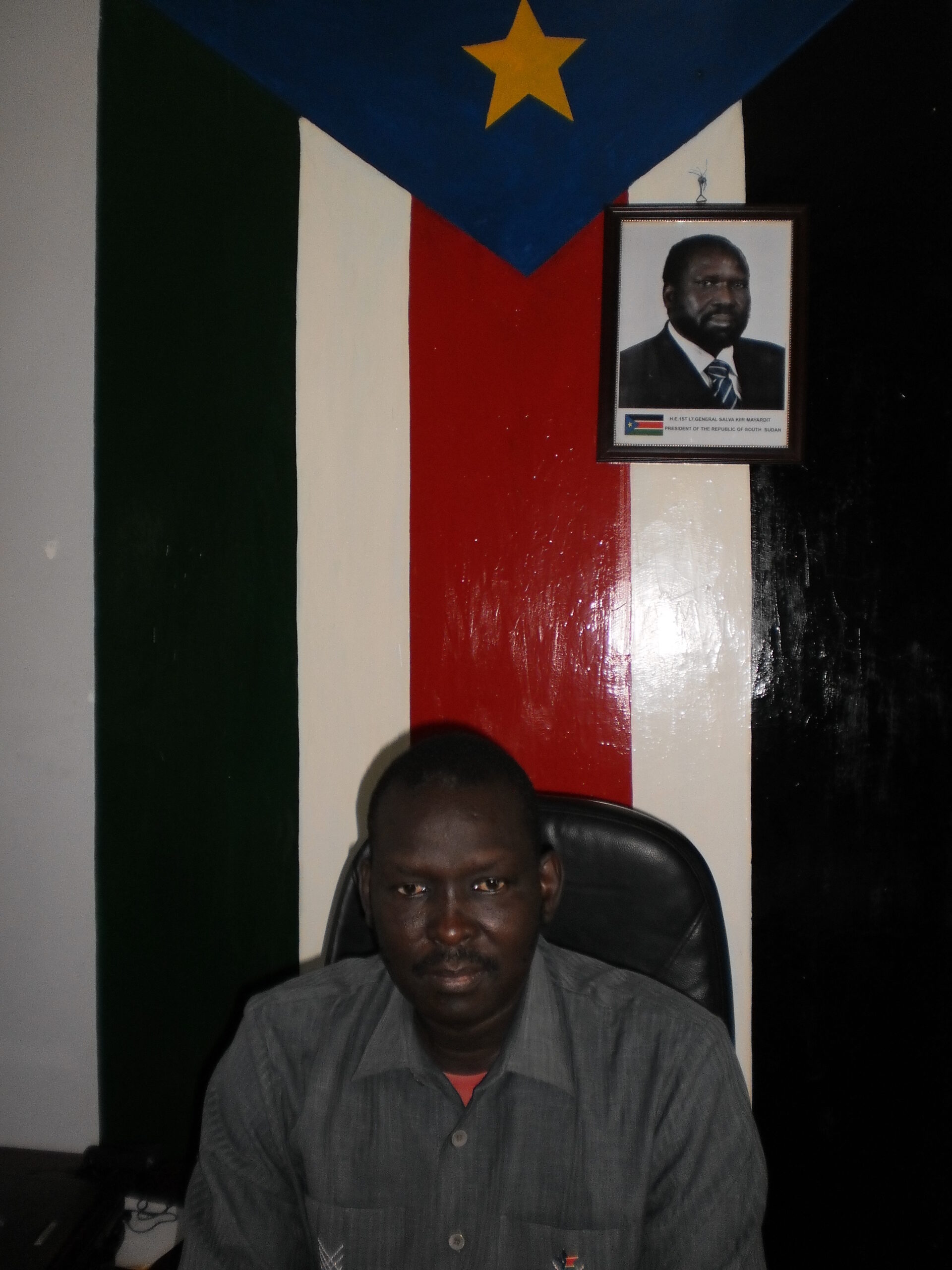Unity State encourages citizens to produce more food to stop reliance on imports
By Bonifacio Taban Kuich
June 7, 2012 (BENTIU) – Unity State Minister of Agriculture Samuel Lony Geng says local communities lack important tools and pesticide to control pests needed to produce enough food. South Sudan is facing a prolonged period of austerity after oil-production was stopped earlier this year over a dispute with Sudan.
The United Nations estimates that half of the young nation’s 8.2 million population will be food insecure this year.

24-year-old Asha Hamed, who came to South Sudan with her husband Hamed Adom Khamis from Darfur in Western Sudan, cultivates 5 pedants along river Naam Sudd land in Bentiu. She told Sudan Tribune on Monday that they are doing well in producing vegetables but urged others to take agriculture more seriously and asked for help from the government and development agencies.
Hamed and her husband are urging local residents to come out to cultivate the Unity State’s fertile land as it was good for farming. She called on the people of Unity State to intensify food production than importing goods.
Only a small fractions South Sudan’s arable land is used for farming.
“As you have seen us we are struggling with my husband Hamed Adom Khamis we have come here to bring up the country in agriculture sectors, we are asking the government and other NGOs to assist us in providing us pesticide in order to kill the pests that damage crops and we are urging men and women to stand up to bring up this country”, Asha explained.
Asha urged on the fellow women in Unity State to work harder in order to improve their life standards for country building.

Minister Geng said that improving the agriculture sector in South Sudan was one of the biggest challenges of the new nation with communities always complaining of lacking seeds. However, he said that many people needed to think what kind of farming they plan to do before talking about lack of seeds and equipment.
Traditional methods would not produce enough food to feed everyone in South Sudan, he said, observing that there was a demand to move towards more mechanized agriculture.
Pest control, particularly in the northern counties of the state that is in Rwueng County, Abiemnom, Mayom and part of Guit, was also important, the minister said.
Food prices, and other goods, have increased dramatically since South Sudan’s independence last year, with inflation reaching 80%.
South Sudan’s decision to halt oil-production has also severely affected the state-dominated economy as 98% of the government’s income came from oil.

VICE PRESIDENT
When South Sudan’s Vice President Riek Machar Teny, visited Unity State over the weeken he called citizens to put their efforts into agriculture as a way to diversify the economy and stop the reliance on oil.
Landlocked South Sudan stopped exporting its oil through Sudan in January accusing Khartoum of confiscating it resources. Sudan responded that it only took the oil as payment in kind for unpaid fees, a position that Juba refutes.
The shutdown has forced Juba to introduce austerity measures which have affected the budget the Ministry of Agriculture, as well as other ministries.
Machar urged the South Sudanese people to produce their own food for consumption rather relying on imports.
“We have stopped the oil production because we came in many disagreement with north Sudanese government, oil production has already stop, as citizen of South Sudan we need to cultivate for our own food production, we don’t want any more foods import outside of country, the government has spend a lot of money to bring food in which we do not want it to happen again, we need to produce our own food in the Country”.
Vice president also called on people to form cooperatives to help boost production and trade between South Sudan’s ten states.
South Sudanese states in the northern part of the country import their food from neighboring Sudanese state after Khartoum closed the border for trade last year.
(ST)
